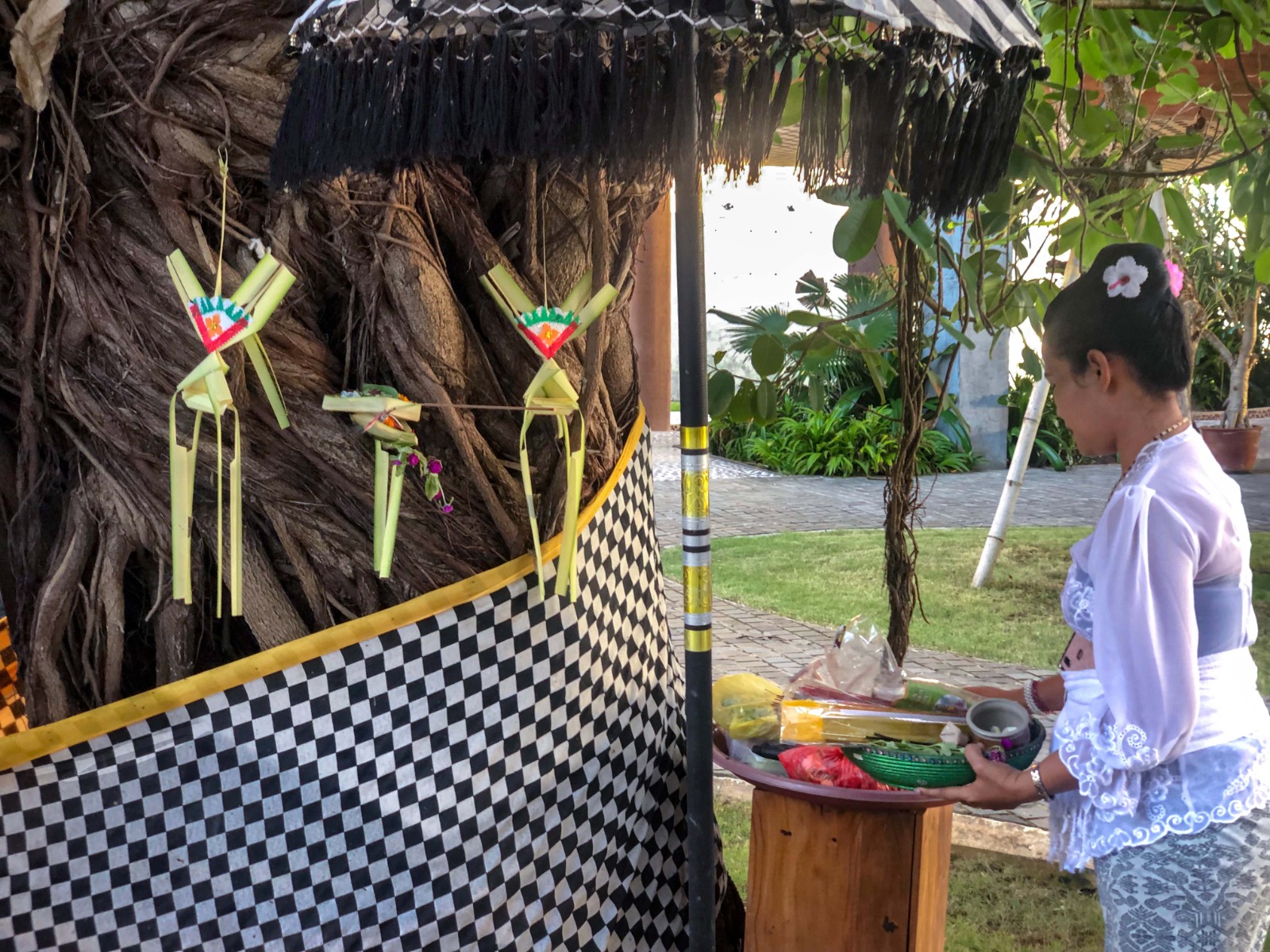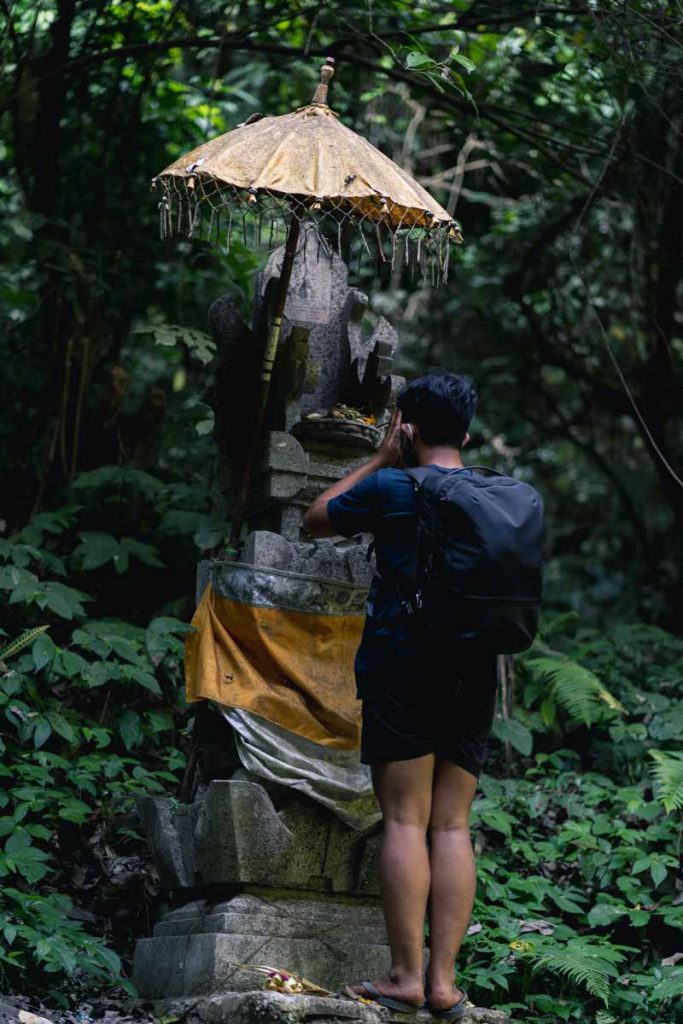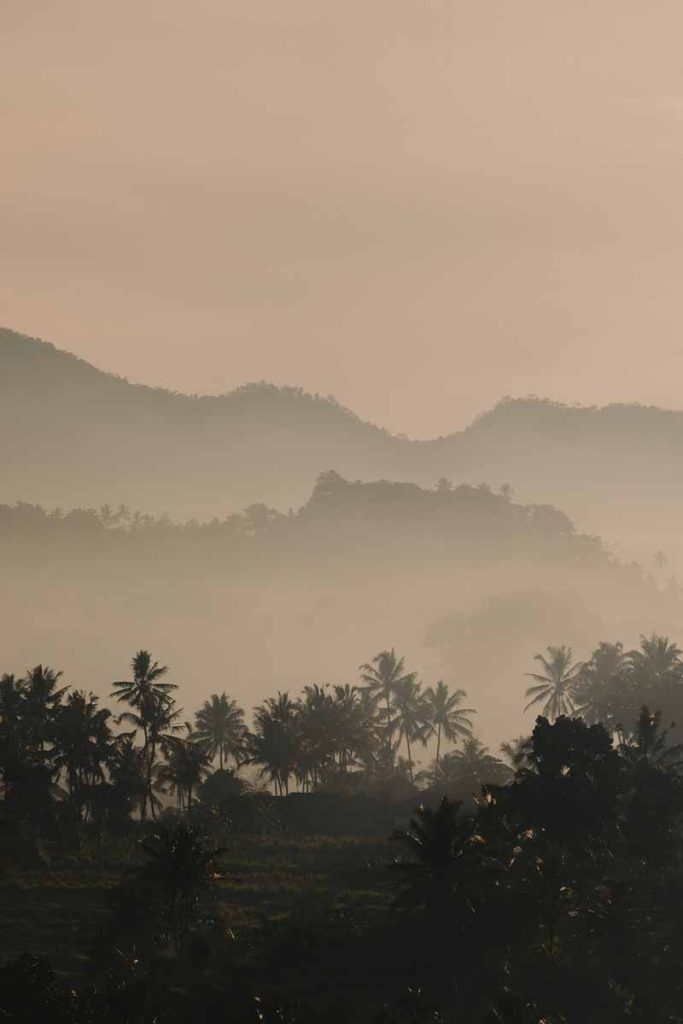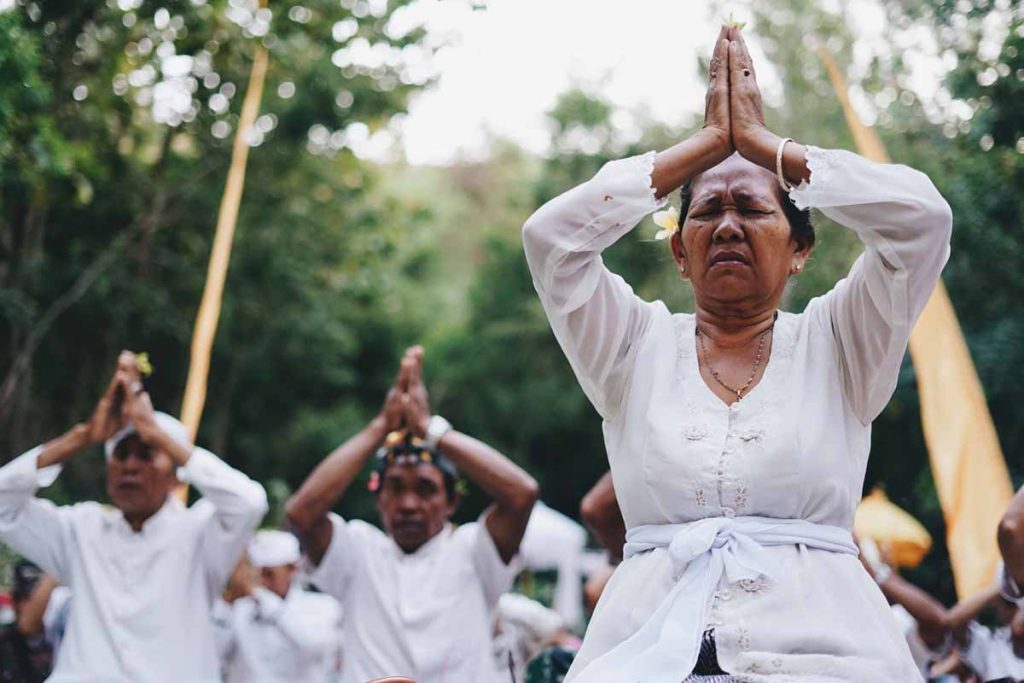
The special ceremony to honour plants is known as Tumpek Uduh, a ritual that falls on Saniscara Kliwon Wariga, a day in which God gave grace to mankind in the world. Also known as Tumpek Wariga, Tumpek Bubuh or Tumpek Pengatag, this auspicious is celebrated every 210 days following the Balinese pawukon calendar.
The worship of Tumpek Uduh is an offering to the manifestation of God as Dewa Sangkara (Sanghyang Sangkara), the God of plants. It marks a moment of reflection for humans on the importance of plants for livelihood, and in the requirement for harmony with nature, as dictated in the Balinese philosophy of wellbeing, Tri Hita Karana. It takes place exactly 25 days before the most important festival, Galungan, and this is no accident. By blessing the plants at this time, they ask them to be blooming, fertile and fruitful in time for the big ceremonies come Galungan Day.


Why so many names for this ‘tumpek’ ceremony? Well, there are many small rituals that must take place. The first if pengarah, whereby it is announced to the plants that they are being blessed. In the prayers, the chosen plant (symbolic of all plants) is referred to as a grandparent (nini-nini or kaki-kaki) and the one offering the prayer is the grandchild, this is to create a more personal connection.
What follows is the pengatag, where the plant is tapped, hit or even partially peeled (if a tree) and then hanging ornaments known as sasap are placed upon it. Next is bubuh, which comes from the term, bubur, or porridge, which is given to the plant as an offering of food (water and nourishment). As plants are considered scared on this day, people are forbidden to climb trees. Like all ceremonies, Tumpek Uduh is a way to give thanks for a particular aspect of life, in this case plants and vegetation; ultimately is is a thanks to the Almighty God, Sang Hyang Widi Wasa via one of His various manifestations.








